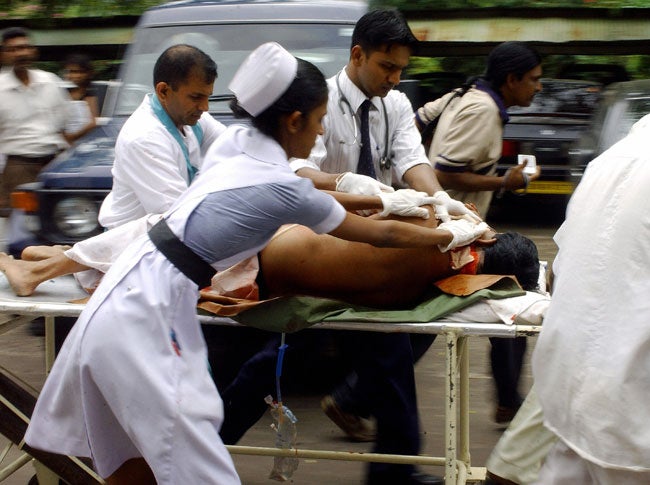Rebels blamed after roadside bomb kills Sri Lankan minister

A Sri Lankan minister has been killed in a bomb attack days after the government pulled out of a failing ceasefire agreement with the Tamil Tiger rebels.
D M Dassanayake, the Building minister, was killed yesterday morning by a roadside device as his car was travelling through Ja-Ela, on the road linking the country's main airport to the capital, Colombo. His death was the first successful assassination attempt against a senior government official for at least 19 months.
Footage showed Mr Dassanayake's Toyota Land Cruiser with its windows smashed and its sides damaged. A pool of blood could be seen on the floor at the location of the blast, which also killed another man and injured several others. A doctor was pictured sitting astride the minister on a trolley, pumping his chest as he was taken to the operating theatre.
Dharmawardena Guruge, a doctor at Ragama Teaching Hospital, where Mr Dassanayake was taken for emergency surgery, told The Associated Press that the minister had injuries all over his body.
The attack on Mr Dassanayake, for which the government has blamed the Tamil Tigers, followed a decision by the authorities to pull out of a ceasefire agreement a move that was criticised by international groups including the EU. The government decided to act shortly after a bomb, also blamed on the separatists, was detonated close to a bus carrying wounded soldiers through Colombo.
Since 2006, about 5,000 people have been killed in mounting violence. But the end of the ceasefire shocked the international community and violence will only spiral higher as the government promises to follow through on a pledge to wipe out the Tigers militarily and dismantle the de facto separatist state in the north of the country.
In the four days since the end of the ceasefire, an estimated 85 people have been killed in the main conflict zone in the north of the country, where the rebels have come under siege. Just two days ago a senior Tiger intelligence officer, Shanmuganathan Ravishankar, was killed and yesterday government jets struck what they said was a suspected rebel command post in the north-western district of Mannar, killing 13.
Mr Dassanayake may have been targeted because he had been given the task of overseeing the reconstruction of Sri Lanka's eastern province, which until recently had been in the control of the Tigers. A concerted effort by government forces last summer drove the rebels out. A military spokesman, Brigadier Udaya Nanayakkara, said: "We have still not arrested anybody, but the suspicion is on the Liberation Tigers of Tamil Eelam."
The attack happened just minutes before Prime Minister Ratnasiri Wickramanayake announced that parliament was again extending emergency rule, a measure that was first imposed in 2005.
An estimated 70,000 people have been killed since the country's civil war broke out in 1983, as Tamil militants demanded a separate state. Both sides have been accused of atrocities by international observers.
Join our commenting forum
Join thought-provoking conversations, follow other Independent readers and see their replies
Comments
Bookmark popover
Removed from bookmarks